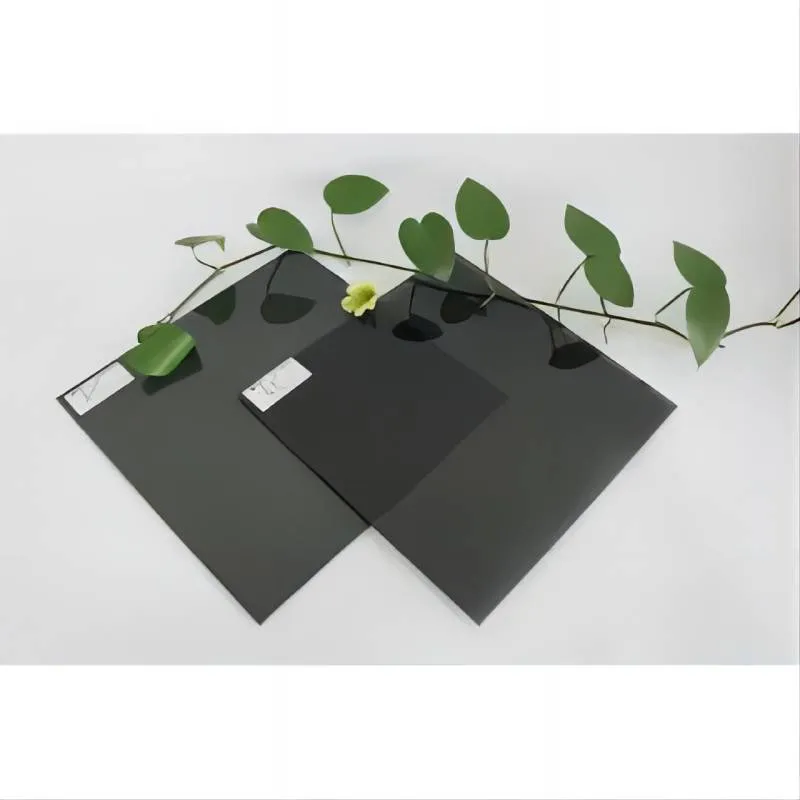The Cost of Rain Glass A Comprehensive Overview
Rain glass, also known as rain-patterned glass or rain-finish glass, has become increasingly popular in modern architectural design and interior decoration. Its unique aesthetic appeal, resembling raindrops on a window, provides both privacy and beauty, making it a favorite for bathroom windows, shower enclosures, and decorative panels. However, one of the most critical factors influencing its adoption is the cost. Understanding the factors that dictate the cost of rain glass can help consumers make informed decisions when considering this beautiful material for their projects.
Types of Rain Glass
The cost of rain glass can vary significantly based on the type. There are several forms of rain glass available in the market, including tempered, laminated, and insulated glass. Tempered rain glass is known for its strength and safety features, as it can withstand higher temperatures and has a lower risk of shattering. Laminated rain glass includes a layer of polyvinyl butyral (PVB) interlayer, providing sound insulation and additional safety. Insulated rain glass consists of two or more glass panes separated by a spacer and filled with gas to improve thermal efficiency. Naturally, the more advanced the manufacturing process, the higher the price point.
Size and Thickness
Another factor that plays a pivotal role in determining the cost of rain glass is its size and thickness. Custom sizes and thicker panels typically come at a higher price due to the additional materials and fabrication processes involved. For instance, a standard-sized panel may cost significantly less than a large, custom-shaped piece. Additionally, the thickness of the glass can greatly influence price, with thicker glass being more expensive due to higher raw material costs and increased complexity in processing.
rain glass cost
Surface Treatments and Custom Designs
Rain glass can also be treated or customized to enhance its appearance or functionality, further impacting its cost. Surface treatments such as anti-reflective coatings or UV filters can add to the price. Custom designs, while attractive, can significantly increase costs due to the additional labor and materials required for fabrication. Consumers should weigh the aesthetics and functionality against the budget to achieve the desired outcome without overspending.
Market Variability
The geographic location and market demand can also affect the cost of rain glass. In regions with high demand for architectural glass, prices may be higher due to increased competition and shipping costs. Conversely, in areas where glass manufacturing is prevalent, the competition might drive prices down. It is essential to shop around and consult different suppliers to get a comprehensive understanding of the price range.
Conclusion
In summary, the cost of rain glass is influenced by various factors, including the type of glass, its size and thickness, any surface treatments or custom designs, and market conditions. As consumers explore their options, it is vital to consider not only the initial cost but also the long-term benefits that rain glass can provide in terms of aesthetics, privacy, and functionality. With thoughtful planning and research, individuals can find the perfect rain glass solution that meets their needs and fits their budget, elevating their spaces with elegance and style.
 Afrikaans
Afrikaans  Albanian
Albanian  Amharic
Amharic  Arabic
Arabic  Armenian
Armenian  Azerbaijani
Azerbaijani  Basque
Basque  Belarusian
Belarusian  Bengali
Bengali  Bosnian
Bosnian  Bulgarian
Bulgarian  Catalan
Catalan  Cebuano
Cebuano  Corsican
Corsican  Croatian
Croatian  Czech
Czech  Danish
Danish  Dutch
Dutch  English
English  Esperanto
Esperanto  Estonian
Estonian  Finnish
Finnish  French
French  Frisian
Frisian  Galician
Galician  Georgian
Georgian  German
German  Greek
Greek  Gujarati
Gujarati  Haitian Creole
Haitian Creole  hausa
hausa  hawaiian
hawaiian  Hebrew
Hebrew  Hindi
Hindi  Miao
Miao  Hungarian
Hungarian  Icelandic
Icelandic  igbo
igbo  Indonesian
Indonesian  irish
irish  Italian
Italian  Japanese
Japanese  Javanese
Javanese  Kannada
Kannada  kazakh
kazakh  Khmer
Khmer  Rwandese
Rwandese  Korean
Korean  Kurdish
Kurdish  Kyrgyz
Kyrgyz  Lao
Lao  Latin
Latin  Latvian
Latvian  Lithuanian
Lithuanian  Luxembourgish
Luxembourgish  Macedonian
Macedonian  Malgashi
Malgashi  Malay
Malay  Malayalam
Malayalam  Maltese
Maltese  Maori
Maori  Marathi
Marathi  Mongolian
Mongolian  Myanmar
Myanmar  Nepali
Nepali  Norwegian
Norwegian  Norwegian
Norwegian  Occitan
Occitan  Pashto
Pashto  Persian
Persian  Polish
Polish  Portuguese
Portuguese  Punjabi
Punjabi  Romanian
Romanian  Russian
Russian  Samoan
Samoan  Scottish Gaelic
Scottish Gaelic  Serbian
Serbian  Sesotho
Sesotho  Shona
Shona  Sindhi
Sindhi  Sinhala
Sinhala  Slovak
Slovak  Slovenian
Slovenian  Somali
Somali  Spanish
Spanish  Sundanese
Sundanese  Swahili
Swahili  Swedish
Swedish  Tagalog
Tagalog  Tajik
Tajik  Tamil
Tamil  Tatar
Tatar  Telugu
Telugu  Thai
Thai  Turkish
Turkish  Turkmen
Turkmen  Ukrainian
Ukrainian  Urdu
Urdu  Uighur
Uighur  Uzbek
Uzbek  Vietnamese
Vietnamese  Welsh
Welsh  Bantu
Bantu  Yiddish
Yiddish  Yoruba
Yoruba  Zulu
Zulu 

